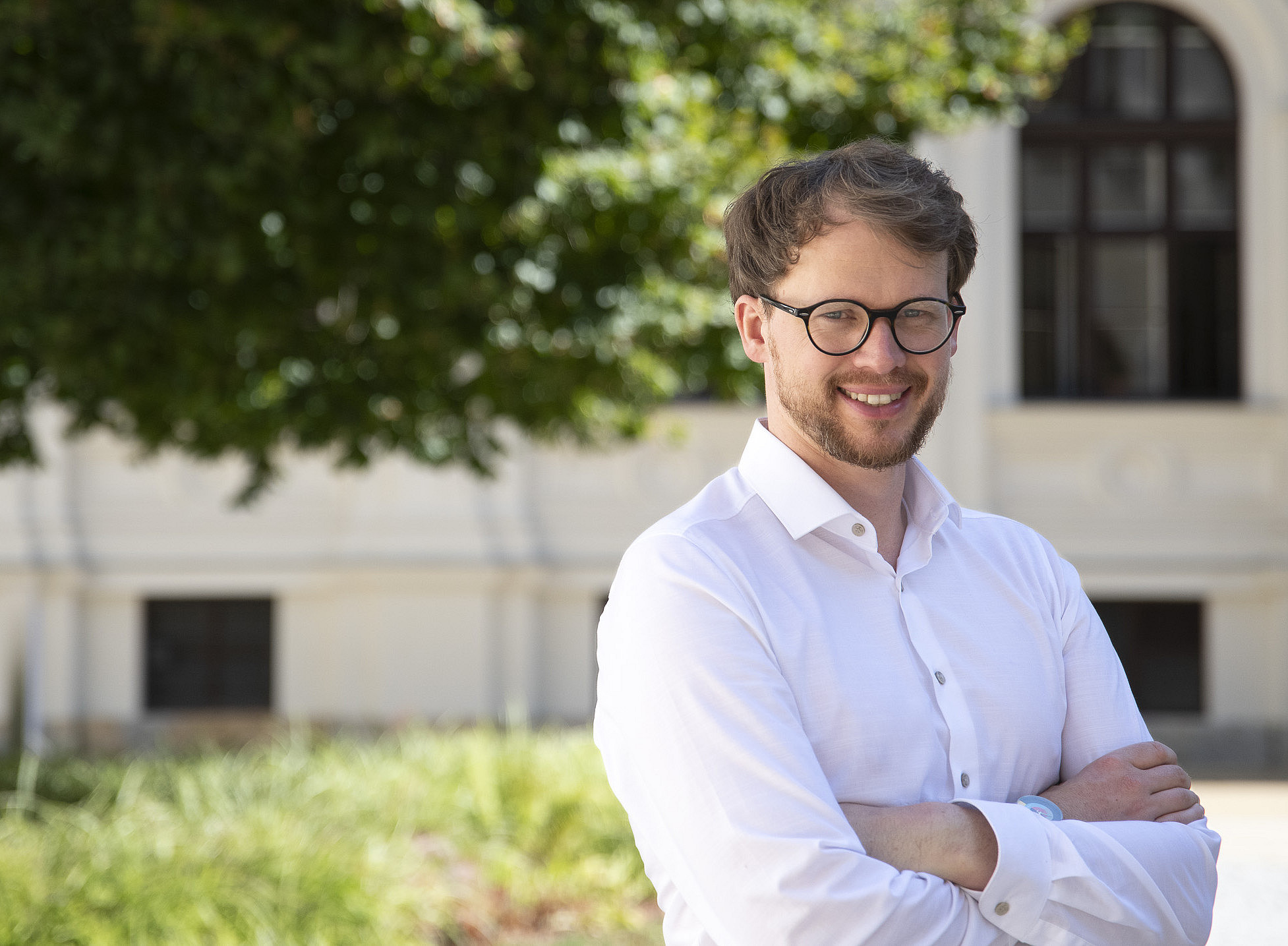In many cases, the tradition and especially the authors of ancient texts have not been clearly clarified and still receive little attention. "While modern literary history is dominated by big author names, in antiquity nameless texts also had an intrinsic value," says Markus Hafner, a classical philologist from Graz. On Tuesday, 5 September 2023, the Bavarian-born Dr. Hafner, who teaches and researches at the Department of Classics at the University of Graz, was selected by the European Research Council (ERC) of the European Commission as the winner of a Starting Grant worth 1.5 million for the project "COLLAPSE – Collaboration and Pseudepigraphy. Facing the Anonymous in Imperial Greek Literature". Together with an international research group, Dr. Hafner wants to take a closer look at hitherto unnoticed texts from ancient Greece over the next few years, reassess them and define their role in literary history.
"In times of artificial intelligence and omnipresent digitalisation, we often forget that anonymously written texts have always existed," Dr. Hafner emphasises. With the ERC funding, he wants to address questions of anonymous and collective authorship in antiquity and, for the first time, give space to the unheard voices of Greek texts in the fields of poetry, religion and science writing. "Some writings – comparable to the wiki texts we are familiar with – were written rather collaboratively. Many authors sometimes worked together on one text," says the researcher. Unfortunately, so far attention has only been paid to works by well-known authors, so that writings written collectively have not been taken into account.
The project, which will run from January 2024 to the end of 2028, aims to change this. To this end, four doctoral students and two postdocs will work with Markus Hafner to research the sources anew.
About the principal investigator
Markus Hafner studied Classical Philology, Philosophy and Education at the LMU Munich and the University of Athens. After his doctorate, he taught various classes and carried out research at universities in Germany and the USA. Since 2020 he has been an Assistant Professor, and since 2022 a professor of Classical Philology (esp. Greek) at the University of Graz.
Tuesday, 05 September 2023
